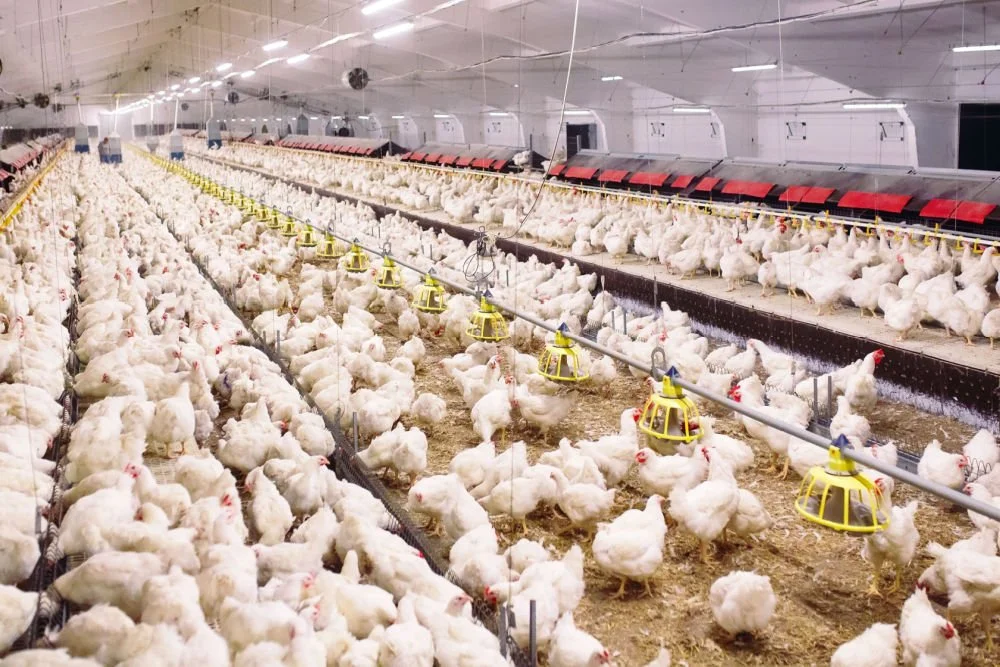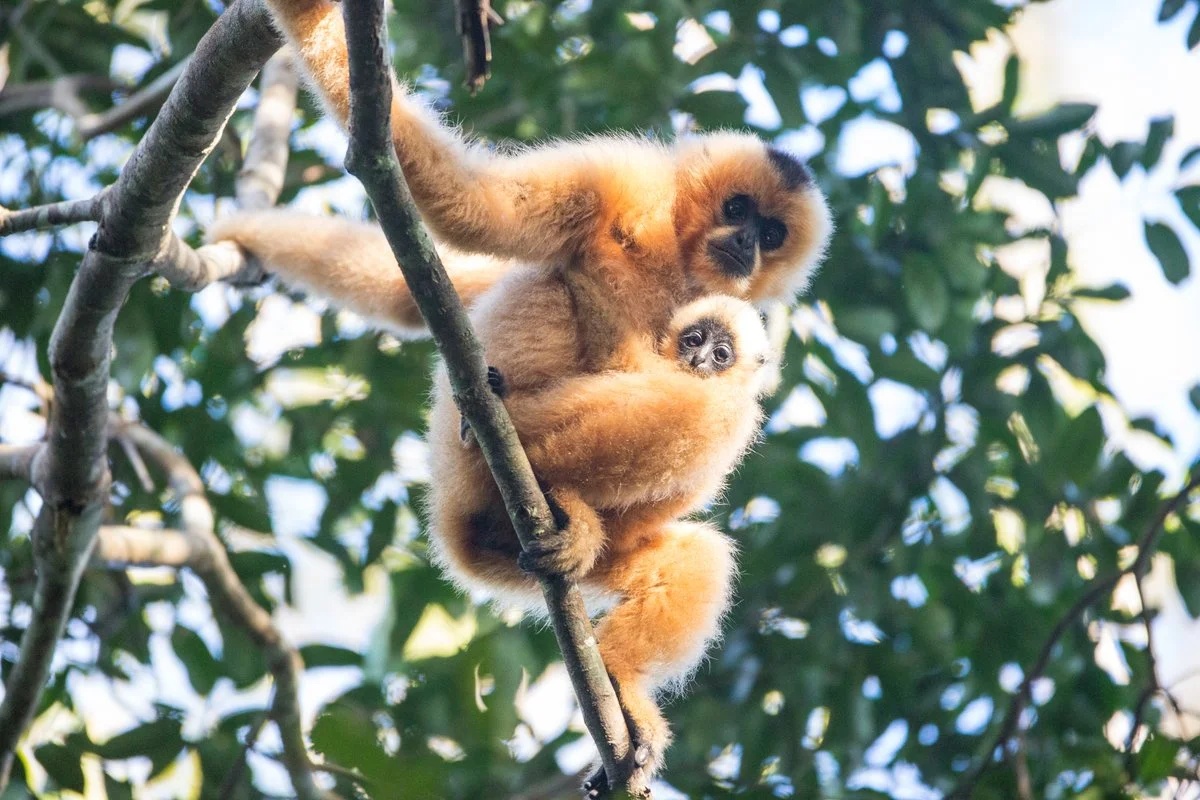The Pride of Chicago: A Big Gift for Big Cats
/A lion on the lincoln park zoo. alisafarov/shutterstock
Lions, the second biggest cats in the world (after tigers), will be getting a new home at Lincoln Park Zoo in Chicago, thanks in part to a recent gift of $15 million from Windy City philanthropists Richard and Roxelyn Pepper. The Pepper family has run Pepper Construction, one of the biggest Midwest general contractors, since Richard’s father Stanley founded it in 1927. The company builds for sectors including commercial office, education, entertainment, waterworks, healthcare and others. Healthcare contracts make up about half of its revenue of about $1.1 billion.
A $40 million remodeling of the lion house constitutes the final phase of the zoo’s $135 million “Pride of Chicago” capital campaign, which launched in 2012. After donating to support this renovation, pushing its financing to a viable level, the Pepper company will now construct the lion habitat itself (having given the zoo the lowest bid), in a kind of circular philanthropy. Pepper Construction has already built several facilities at the zoo. It also served as the general contractor for the Cincinnati Zoo and Botanical Garden’s renovation, which we reported a few years back.
Of course, as well as securing more work for their company, the Peppers are supporting a local institution. A few other philanthropists currently investing in Chicago include Penny Pritzker and Bryan Traubert through their Pritzker Traubert Foundation’s Chicago Prize, and Ken Griffin, through a gift to the Museum of Science and Industry.
“As longtime Chicagoans, our family cares deeply about Chicago. We want to build a legacy that ensures its historic institutions are sustained while modernizing with the times,” Richard Pepper said in a statement. The Peppers were not available to contribute to this article. Some of their other main philanthropic activities have also been close to home; they’ve given multiple contributions to their shared alma mater, Northwestern University.
A Growing Track Record of Philanthropy
Richard Pepper, chairman emeritus of Pepper Construction Group, received a bachelor’s degree in civil engineering from Northwestern in 1953. Roxelyn earned a degree in communication sciences and disorders the same year. She is the daughter of Berenice Miller and the late Dr. J. Roscoe Miller, who was Northwestern’s president from 1949 to 1970. Richard and Roxelyn dated and married while in school.
A few years back, in 2013, the Peppers gave a lead gift of $5 million for the reconstruction of Northwestern’s baseball stadium, which was their idea. It was originally named Rocky Miller Park for Roxelyn’s father. In 2016, the updated park was rededicated the Rocky and Berenice Miller Park, in honor of her mother.
“As baseball fans, we are delighted with the new facilities and the opportunity that they bring for our new coach and student-athletes to be one of the best teams in the Big Ten,” Richard told NU Sports.
Earlier, in 2005, the couple gave $5 million to Northwestern to endow the department of communication sciences and disorders. The department was renamed after them. The couple also previously supported Richard’s academic major—in 1978, they established the Stanley F. Pepper Chair in Civil Engineering to honor his father. And in 1997, the Peppers contributed $4 million to endow undergrad labs in civil and environmental engineering and assist the renovation of the McCormick School of Engineering and Applied Science. And Pepper Construction has built multiple buildings on the university's Lakefill campus.
Both Peppers also participated in Northwestern alumni groups and served on advisory boards for the schools of their respective majors. Roxelyn was previously a member of the school’s board of trustees. According to an announcement of alumni awards for the pair in 2001, Roxelyn was a director of Hospice of Northeastern Illinois and president of the Hospice Foundation, and Richard was a director of the Barrington branch of Harris Bank and the board of the Associated General Contractors of America. They are now in their late 80s. We respectfully note that the Pepper’s son and company CEO, J. David Pepper, died in late 2019.
A New Habitat for a Charismatic Species
Grants to zoos intended to boost the public’s connection to nature and support conservation efforts are on the rise, and the Peppers’ gift is a perfect example of this trend. The zoo additions will include a demonstration wall and indoor community space that allow visitors to see the animals up close and learn how to support them in the wild. According to a zoo representative, the facilities will provide new opportunities to share research and stories from the zoo’s long-term field sites in Tanzania relating to the conservation of lions and the Serengeti ecosystem.
The Peppers also gave $100,000 to start a lion conservation fund at the zoo. Whether zoos are, in fact, advancing conservation goals remains a debated topic among scientists, nonprofit professionals and animal rights advocates, as we’ve noted. We asked Dr. Craig Packer of the University of Minnesota, known as the world’s foremost expert on African lions, whether these cats should be held in captivity.
“Opportunities to view charismatic species like lions inspire an interest in the natural world and a desire to conserve their habitat,” he said. “Lions readily reproduce in captivity and, as facilities and husbandry practices continue to improve, the welfare of the captive lions will improve, as well.”
The lions’ new digs in Chicago will feature many updates, like tree structures, rockwork, heating and cooling elements, and a food zip line to simulate moving prey. Importantly, the cats’ space will expand to three times its previous size. However, the zoo’s previous lion tenants won’t get to enjoy the updates—they have already been transferred to new homes. New lions will arrive upon completion of the zoo project, which is slated for 2021.
“[The lions] told us through their behavior what they liked, and where they chose to spend their time. Then we worked with the architects to create a space that reflects those preferences in design elements such as vertical complexity, shade coverage and enrichment opportunities,” Lincoln Park Zoo Senior Welfare Scientist Katie Cronin, Ph.D., said.
Packer said of the planned renovations, “I'd have to see the facility in person to make a truly informed assessment, but from what I can tell, it sounds rather wonderful. The more space and the more spatial complexity in the facility, the better.”
Once updated, the lion house (previously named for the Kovler Family Foundation), will be the main feature of the new Pepper Family Wildlife Center at the Lincoln Park Zoo. Kevin Bell, zoo president and CEO, thanked the Kovler Family for their previous help and said, “Now, we put in all our gift agreements a time limit on naming.”
Pepper Construction also built the zoo’s Robert and Mayari Pritzker Penguin Cove, Regenstein Macaque Forest, Walter Family Arctic Tundra, Nature Boardwalk, Regenstein Center for African Apes, and other areas. The Lincoln Park Zoo is a free, privately managed institution. It receives about 19 percent of its budget from the Chicago Park District, but mostly relies on the support of visitors, members and donors.



















